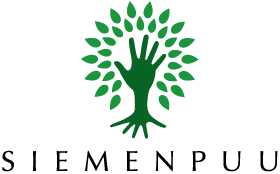Siemenpuu Foundation’s Indonesia group is organizing an open seminar on the current situation of oil palm production in Indonesia. Particular focus will be on how the palm oil boom and power politics are intertwined and what kind of challenges local communities and environmental NGOs face. The seminar language is English.
Time: Thursday 6.11.2014, 9:00-12:30
Venue: Annantalo, Auditorio, Annankatu 30, Helsinki
Seminar programme:
9:00-9:25 Welcome words and setting of the context by Mr. Otto Bruun, chair of Siemenpuu Board
9:25-10:00 An aggressive expansion of oil palm plantation; Case study of Riau Province, Indonesia by Ms. Woro Supartinah, NGO Jikalahari, Sumatra Riau
10:00-10:45 Palm oil plantation expansion: What does local community really gain from it? by Mr. Zacki Hasan, community representative, Sumatra Riau
10:45-11.20 Power structures and environment in Indonesia by Mr. Timo Kaartinen, Helsinki University
11:20-12:30 Commentary speeches from researcher Ms. Anu Lounela, Mr. Otto Miettinen (Luonto-Liitto), Ms. Sini Harkki (Greenpeace), Ms. Kaisa Hietala (Neste Oil) and open discussion
Moderator Mr. Otto Bruun
The rate of deforestation in Indonesia is fastest in the world. Natural forests are being destroyed mainly by pulp and oil palm plantations. Between 1990 and 2010, the number of oil palm plantations in the country increased approximately by 600 percent, and the government aims to increase production even further.
Palm oil imports to the EU have increased significantly in recent years and the Finnish state-owned Neste Oil is one of the world’s largest buyers of palm oil. Also, the food industry companies bring considerable amounts of palm oil to Finland. Palm oil production and its responsibility are thus worth paying attention to.
In Indonesia, corruption is widespread, the rule of law is not fully realized, freedom of speech is limited and private sector regulation is weak. As a result, the production of palm oil involves specific problems of ecological, social and economic sustainability. In addition, criticizing the oil palm boom in public can cause problems in Indonesia.
What kind of public discussions are going on in Indonesia regarding palm oil? How is the spread of oil palm plantations seen at the village level? What is it like to raise a palm oil plantation critique in the most corrupted Indonesian province of Riau? What kinds of power games are played in Indonesia at the expense of the environment and how these affect local communities?
